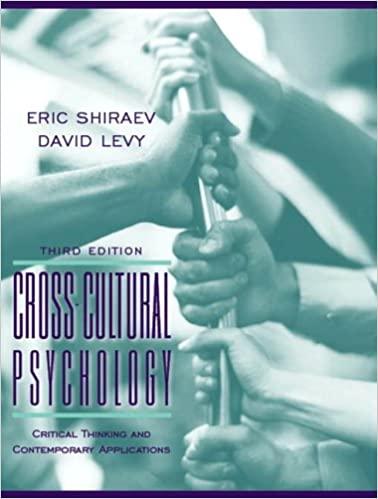Question
Imagine that you are working as a counsellor, and your first client today is Ben. Ben has separated from Teresa, and they share care for
Imagine that you are working as a counsellor, and your first client today is Ben. Ben has separated from Teresa, and they share care for their children, Maison and Tully (ages 8 and 4). During your appointment with Ben, he discusses behaviours of Teresa's that were difficult for him to deal with including regularly screaming and swearing at him, monitoring his behaviour and where he went, and throwing his possessions if he failed to meet her expectations. He explains that this behaviour was very hard on him, and he eventually realised that he had become depressed. He says that accepting this was also difficult, and it took a long conversation with his GP before he recognised that he was experiencing mental health issues. The GP also said that Teresa's behaviour may have been abusive, but Ben is not agreeing with him.
During the session, you notice a sense of frustration in yourself that Ben seemed not willing to accept that Teresa's behaviours were abusive, despite his struggles to cope with her "difficult' behaviours". However, you quickly remind yourself that it is your role to support and work collaboratively with Ben.
Describe the steps you would take to develop a collaborative, empathic relationship with Ben.
Step by Step Solution
There are 3 Steps involved in it
Step: 1

Get Instant Access to Expert-Tailored Solutions
See step-by-step solutions with expert insights and AI powered tools for academic success
Step: 2

Step: 3

Ace Your Homework with AI
Get the answers you need in no time with our AI-driven, step-by-step assistance
Get Started


